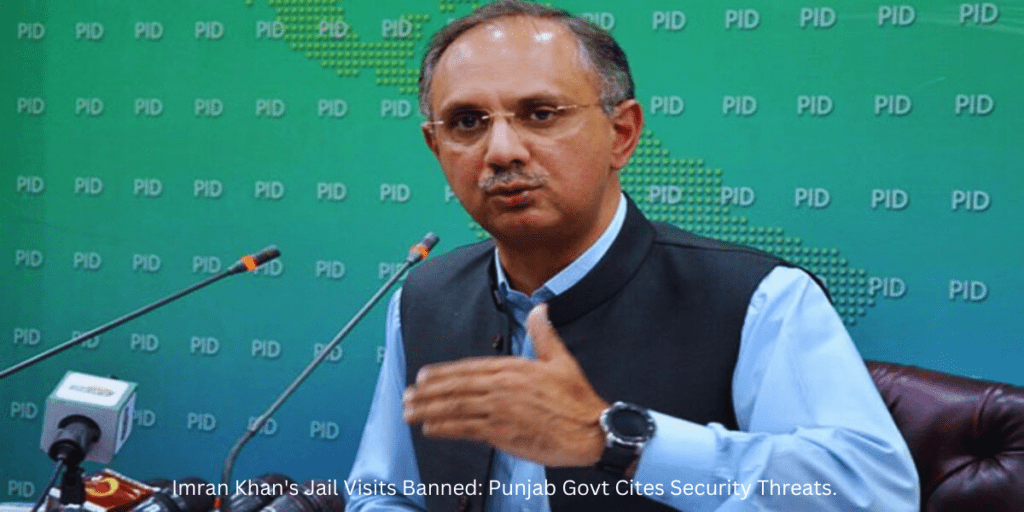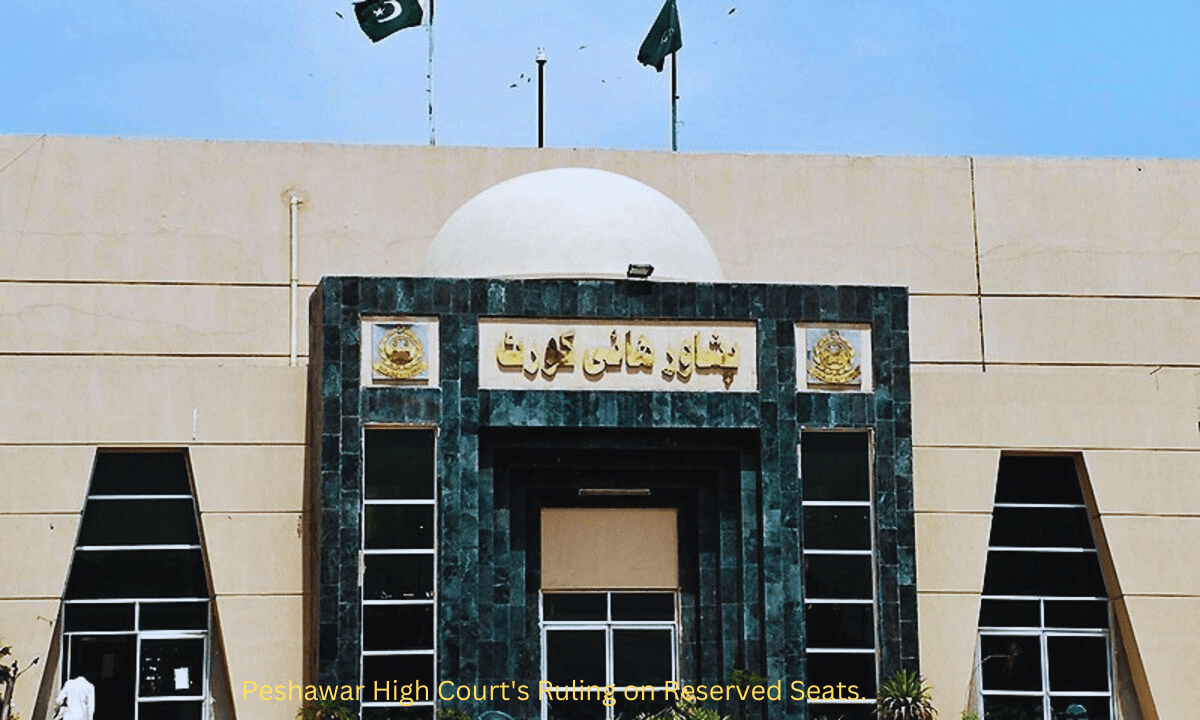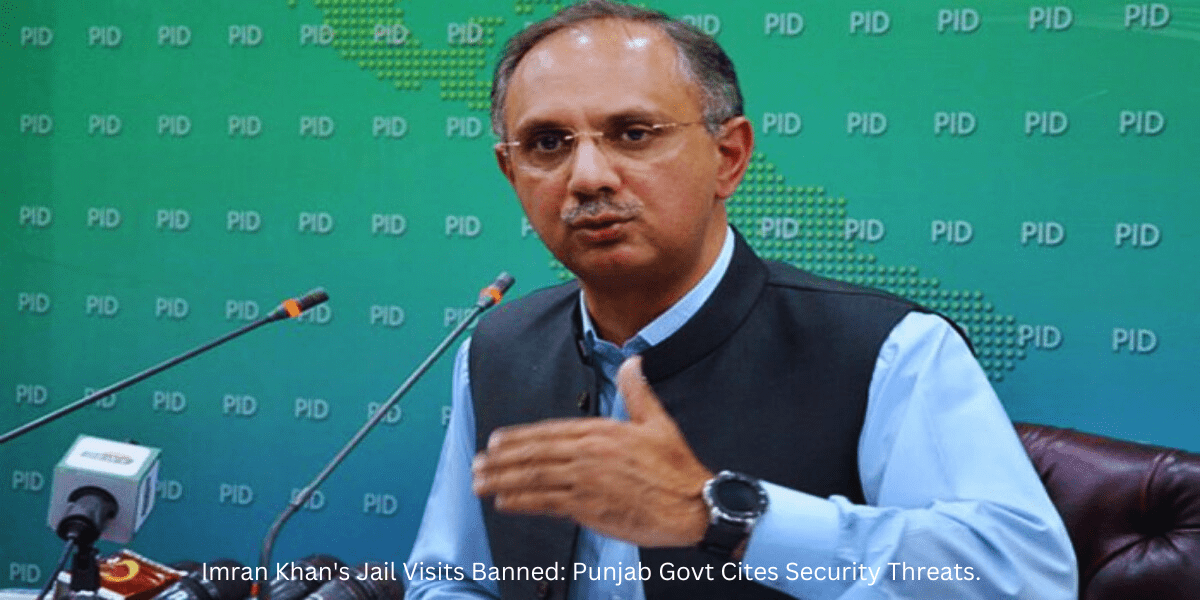
The Punjab government’s decision to impose a two-week ban on public visits to Adiala jail, citing security threats, has sparked controversy and condemnation from PTI leaders. The move, which prevents meetings with incarcerated figures including Imran Khan, has raised questions about political motivations. Despite court orders and objections from PTI members, the ban remains in place, prompting vows of legal action and calls for transparency. This development underscores the ongoing tensions and power struggles within Pakistani politics, highlighting the challenges faced by opposition figures and the complex dynamics of governance in the region.
Jail Security Concerns Prompt Punjab Government to Impose Ban
On Tuesday, the Punjab administration enacted a fortnight-long prohibition on all public engagements, including visits, meetings, and interviews at the Adiala jail in Rawalpindi, attributing the decision to “security” concerns. This directive has been met with criticism from PTI leaders, who interpret it as an intentional strategy to prevent them from convening with their party’s founder, Imran Khan, who is presently detained at the said prison.
The Punjab Home Department, in a communique addressed to the head of Punjab prisons, relayed a message from its Internal Security Wing warning of various threats to the security of Adiala jail. The threats were reportedly from anti-state terrorist factions, backed by adversaries of Pakistan, plotting targeted assaults.
In response to these potential threats, the department has advised the prison chief to immediately suspend all public visitations, meetings, and interviews at Adiala Jail for a period of two weeks as a precautionary measure.
This directive follows a recent incident where the Rawalpindi Counter Terrorism Department (CTD) and local police claimed to have thwarted an attack on the facility, resulting in the arrest of three individuals suspected of terrorism.
Imran Khan, along with other prominent PTI figures such as Shah Mahmood Qureshi and Parvez Elahi, are currently incarcerated at Adiala Jail.
The Punjab government has taken a significant step by imposing a two-week ban on all public visits, meetings, and interviews at Rawalpindi’s Adiala jail. This decision stems from heightened security threats perceived by the Punjab Home Department, particularly concerning the safety and security of the jail premises.
Security Threats at Adiala Jail
The Punjab Home Department, through its Internal Security Wing, has expressed grave concerns over the potential risks posed by various anti-state terrorist groups. According to their assessment, these groups, allegedly supported by enemies of Pakistan, have purportedly planned targeted attacks on Adiala jail. The recent arrest of three terrorists by the Rawalpindi Counter Terrorism Department (CTD) and police further underscores the seriousness of the security situation surrounding the facility.
Impact on Imran Khan and PTI Leaders
The timing of this ban is particularly significant as it affects prominent political figures, including Imran Khan, the founder of the Pakistan Tehreek-e-Insaf (PTI) party, along with senior PTI leaders Shah Mahmood Qureshi and Parvez Elahi, who are currently detained at Adiala jail. The ban has effectively barred them from receiving visitors, including fellow party members and legal counsel.
PTI Leaders’ Reaction
PTI officials, barred from visiting Imran due to the recent restrictions, criticized the Punjab government’s actions.
Barrister Salman Safdar expressed his frustration, saying, “We were scheduled to visit today, but we were unable to do so. The ban, citing security concerns, prevented the meeting.”
During a media briefing in Islamabad, PTI Chairman Barrister Gohar Ali Khan denounced the imposition of the two-week ban, attributing it to alleged terror threats. “We vehemently oppose this indiscriminate prohibition,” he stated.
Barrister Gohar Khan, while addressing the media in Islamabad, insisted, “Prior to enforcing such measures, it was imperative to notify Imran’s family and legal representatives.”
Reflecting on the “two previous attempts on Imran’s life,” Gohar remarked, “The abrupt confinement is a troubling sign that Khan sahib’s safety is at risk.”

Addressing the press outside Adiala jail, National Assembly Opposition Leader Omar Ayub Khan voiced his and other PTI legislators’ frustration at being barred from meeting Imran Khan, despite what he claimed were existing court orders permitting such a meeting.
“We denounce the two-week ban,” he stated emphatically.
Ayub criticized the Punjab home secretary, calling for shame over the prohibition, and extended this rebuke to Maryam Nawaz, whom he labeled as the so-called, unconstitutional, and illegal chief minister, holding her responsible for the enforcement of this restriction.
Echoing his earlier sentiments, he also expressed that Prime Minister Shehbaz Sharif and the recently appointed Interior Minister Mohsin Naqvi, the former caretaker Punjab CM, should feel a similar sense of disgrace.
Citing “security threats” as the official reason for the ban, the opposition leader in the National Assembly declared the party’s utmost objection to the ban.
He underscored his concern for Imran Khan’s welfare, noting that this was his third attempt to visit the jail without being granted access, and emphasized the urgency of discussing the upcoming Senate elections with Imran, accusing the government of deliberately impeding this process.
Describing the prohibition as “bogus,” Ayub contended that such a ban is not permissible under the law and pointed out the absence of the jail’s superintendent during this period.
The PTI MNA alleged that upon requesting the assistant superintendent to engage in a dialogue with them, he evaded the encounter.
He further claimed that the jail personnel were actively avoiding any interaction with the PTI leadership. Ayub declared that the party intended to summon these officials to the National Assembly for an inquiry into the issue.
Reiterating his previous day’s remarks about bringing the police before the Public Accounts Committee (PAC), the PTI secretary general announced plans to collaborate with PAC allies in the Punjab Assembly to scrutinize Adiala Jail’s expenditures and investigate allegations of corruption among its officers.
Ayub also mentioned that, as per a judicial directive, the jail staff could face a penalty of Rs25,000 imposed by the authorities if they barred PTI representatives from meeting Imran Khan.
PTI leaders have vehemently criticized the Punjab government’s decision, labeling it as a deliberate attempt to obstruct their access to Imran Khan. They argue that the ban not only hampers their ability to meet with their incarcerated leader but also infringes upon their rights. Additionally, PTI leaders have raised concerns about the lack of transparency surrounding the decision-making process and have demanded that Imran Khan’s family members and legal representatives be duly informed before implementing such restrictive measures.
Political Ramifications
PTI MNA Sher Afzal Marwat highlighted that the former prime minister was subjected to a “ban on visitations at Adiala Jail on the first day of the holy month of Ramazan.”
Marwat, in a social media post, criticized the “removal of media representatives from Adiala Jail’s vicinity” as an action deeply incongruent with the tenets of democracy. “Such autocratic tactics are strongly condemned,” he stated.
He further declared the party’s determination to challenge this oppression, ensuring that the issue is actively pursued across various political arenas, including the esteemed Parliament.
PTI’s representative, Raoof Hasan, criticized the comprehensive prohibition on meetings with Imran as a “criminal act,” suggesting it mirrors the deep-seated apprehension of Punjab’s unconstitutional and illegitimate administration and their overseers.
In a statement on a social platform, he articulated his intention to contest the restriction legally, hopeful for swift judicial intervention and anticipatory that the regional government would be directed to refrain from enforcing such oppressive actions in the future.
Hasan emphasized that Imran Khan’s influence cannot be diminished by oppressive governmental tactics. He asserted that attempts to undermine Khan only serve to fortify his stature and popularity among the people.
The imposition of this ban has sparked a political firestorm, with PTI leaders accusing the Punjab government, led by Chief Minister Maryam Nawaz, of resorting to unconstitutional tactics to suppress political dissent. The ban has further strained the already tense relationship between the ruling party and the opposition, leading to heated exchanges and calls for accountability.
Legal Challenges and Future Course of Action
PTI leaders have vowed to challenge the ban in court, arguing that it infringes upon fundamental rights and constitutes an abuse of power. They are determined to pursue all available legal avenues to ensure that the ban is lifted and that Imran Khan and other detainees are afforded their rights.
In conclusion, the Punjab government’s decision to impose a ban on public visits to Adiala jail underscores the complex interplay between security concerns and political dynamics in Pakistan. The ramifications of this ban extend beyond the confines of the jail, affecting the broader political landscape and highlighting the ongoing power struggles within the country’s governance structures.
Frequently Asked Questions (FAQ’s)
Q: Why did the Punjab government impose a ban on public visits to Adiala jail?
A: The Punjab government cited security threats as the reason for imposing the ban on public visits to Adiala jail, fearing targeted attacks by anti-state terrorist groups.
Q: Who are the key figures affected by the ban?
A: The ban affects PTI leaders, including Imran Khan, Shah Mahmood Qureshi, and Parvez Elahi, who are currently detained at Adiala jail.
Q: What is the response of PTI leaders to the ban?
A: PTI leaders have strongly condemned the ban, alleging it is politically motivated and aimed at obstructing their access to Imran Khan. They have vowed to challenge the decision legally.




Leave a Reply